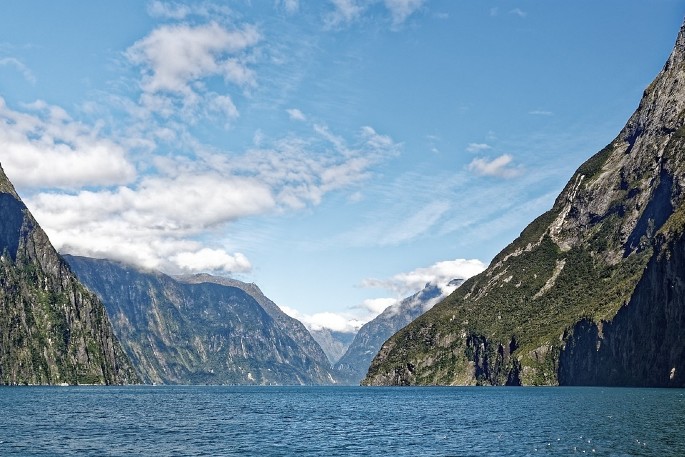This Content Is Only For Subscribers
New Zealand is partnering with global conservation charities to raise $137 million to rewild some of Aotearoa’s largest islands so they become safe havens for native wildlife found nowhere else in the world.
The Department of Conservation and partners are joining the international Island-Ocean Connection Challenge to boost conservation efforts on subantarctic Maukahuka/Auckland Island, Rakiura/Stewart Island and the Chatham Islands.
The IOCC, led by international conservation groups, Island Conservation and Re:wild, and UC San Diego’s Scripps Institution of Oceanography, aims to restore at least 40 globally significant island-ocean ecosystems around the world by 2030.
An ambitious plan to remove invasive species, protect threatened wildlife, and restore the island ecosystems so they’re resilient to climate change has been agreed by DOC, Ngāi Tahu, Moriori, Ngāti Mutunga o Wharekauri and community partners.
DOC director-general Penny Nelson says joining the IOCC will help New Zealand promote and amplify groundbreaking island conservation on the world stage.
“For millions of years, New Zealand’s native species evolved separately from the rest of the world. They’re unique, they’re only found here, and once they’re gone from here, they’re gone from everywhere.
“These islands are precious remnants of a prehistoric world. Protecting and restoring them will make sure they become safe havens for iconic native species once more.
“We want to see the return of fields of chest-high flowering megaherbs on Maukahuka/Auckland Island, thriving colonies of diverse seabirds like tāiko and albatross on the Chatham Islands and Rakiura becoming a refuge for kākāpō.
“Partnering with the IOCC connects us with international donors who want to restore nature. It will boost government investment so we can scale up the most complex and challenging island conservation projects New Zealand has ever attempted.
“We’re thrilled that just last month a generous New Zealander donated $100,000 to the Auckland Island project, adding to the $11.5 million already raised through philanthropy across the three projects,” Penny says.
“We are beyond excited to welcome these three important New Zealand restoration projects into our global portfolio of island-ocean ecosystems,” says Island Conservation CEO Penny Becker.
“By restoring these islands, we can make a tangible difference for biodiversity and oceans. Investing in these projects is an investment in the health and future of our planet.”
Signatory partners are celebrating the launch of New Zealand’s participation in the IOCC at an event at Te Rau Aroha Marae in Bluff, hosted by Te Rūnaka o Awarua.
“Te Rūnaka o Awarua is delighted to be hosting this event to launch the entry of these three motu (islands) into the IOCC,” says Awarua Rūnaka spokesperson and co-chair of Te Puka Rakiura Trust Dean Whaanga.
“Two of the three islands – Rakiura/Stewart Island and Maukahuka/Auckland Island – are located within the Ngāi Tahu takiwā (territory) and our role as kaitiaki (guardians) of these motu is of immense significance to our whānau (people).
“Our success in restoring the small offshore islands surrounding Rakiura has laid the pathway for the mahi that needs to be done on Rakiura and Maukahuka,” Dean says.
New Zealand is world renowned for island conservation work with more than 110 successful island pest eradications achieved so far and an ambitious nationwide Predator Free 2050 goal. However, the three latest island projects will be ground-breaking in their scale and complexity.
Each island is four to 15 times larger than the biggest New Zealand island (Campbell Island) previously cleared of pests. Their remoteness from the mainland, difficult terrain, wild weather and multiple animal pest species presents unique challenges. Human settlements are also present on Rakiura and the Chatham Islands, marking a first for New Zealand predator free projects of this scale. The local communities play a crucial part in the restoration of these islands.
Plans for removing introduced predators from the three islands have been underway for many years and are well advanced. Extensive research and feasibility work has been undertaken, involving a wide range of expertise including in science, predator control, planning and logistics, and community engagement. Investment in these projects will unlock new methods and grow the toolbox for eradicating harmful introduced predators both in Aotearoa and around the world.
The government has invested $54 million in the three island conservation projects, which are estimated to cost a total of $202 million. With $11.5 million donated so far, this leaves $137 million still to be raised.
Funds raised towards the three island conservation projects will be managed by the New Zealand Nature Fund, which is supporting New Zealand’s IOCC pledge. NZNF is also embarking on a major campaign with donors and philanthropists.
Donate today to help restore the natural biodiversity of these three unique islands: www.nznaturefund.org/iocc



